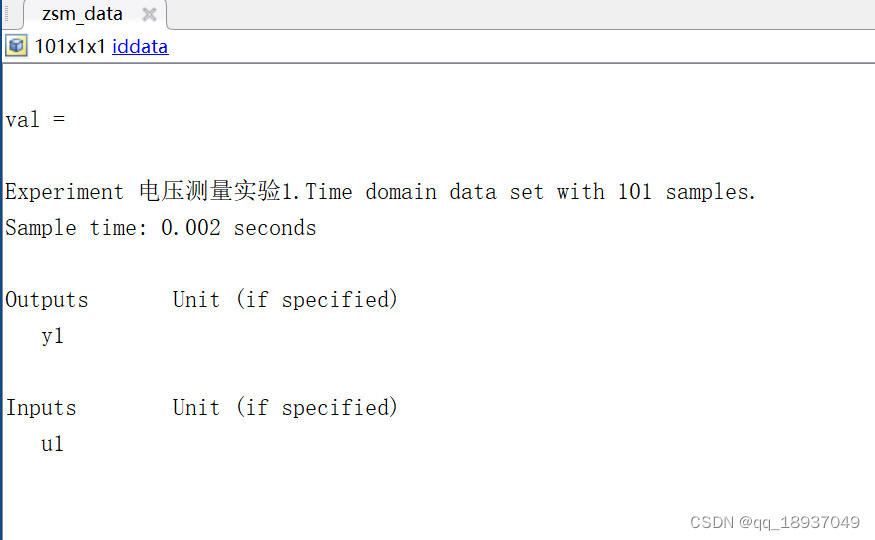1、AVL树简介
AVL树是最先发明的自平衡二叉查找树。在AVL树中任何节点的两个子树的高度最大差别为1,所以它也被称为高度平衡树。增加和删除可能需要通过一次或多次树旋转来重新平衡这个树。AVL树得名于它的发明者G. M. Adelson-Velsky和E. M. Landis,他们在1962年的论文《An algorithm for the organization of information》中发表了它。
- 它的子树都是AVL树
- 左右子树高度插(平衡因子)的绝对值不超过1
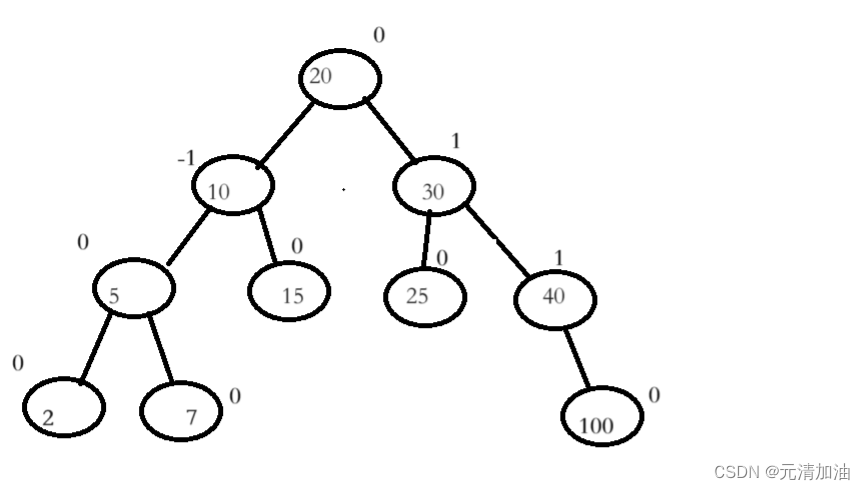
AVL树还是一个搜索二叉树,只不过因为普通的搜索二叉树有可能变成单只树,这样就使查找效率非常的低。我们就给普通的搜索二叉树增加了一个平衡因子来使AVL左右子树的高度差的绝对值不超过1
template<class K,class V>
struct AVLTreeNode
{
AVLTreeNode<K, V>* _left;
AVLTreeNode<K, V>* _right;
AVLTreeNode<K, V>* _parent;
pair<K, V> _kv; // 存储的键对
int _bf; // balance factor
AVLTreeNode(const pair<K, V>& kv)
:_left(nullptr)
, _right(nullptr)
, _parent(nullptr)
, _kv(kv)
, _bf(0)
{}
};
template<class K, class V>
class AVLTree
{
typedef AVLTreeNode<K, V> Node;
public:
bool Insert(const pair<K, V>& kv);
bool IsBalance();
void InOrder();
void Height();
private:
void RotateL(Node* parent); //左旋转
void RotateR(Node* parent); //右旋转
void RotateRL(Node* parent); //右左旋转
void RotateLR(Node* parent); //左右旋转
bool _IsBalance(Node* root);
void _InOrder(Node* root);
int _Height(Node* root);
Node* _root = nullptr;
};2、AVL树的插入
- AVL树的插入前面和搜索二叉树的插入一模一样,只不过我们要注意平衡因子
- 因为AVL树保持平衡是要平衡因子的绝对值不超过1,而插入会使平衡因子改变,所以我们也要要相应的旋转,使平衡因子的绝对值不超过一,我们又有几种情况
- 假如以pParent为根的子树不平衡,即pParent的平衡因子为2或者-2,分以下情况考虑
- parent的平衡因子为2,说明parent的右子树高,设parent的右子树的根为subR,当subR的平衡因子为1时,执行左单旋。当subR的平衡因子为-1时,执行右左双旋
- parent的平衡因子为-2,说明parent的左子树高,设parent的左子树的根为subL,当subL的平衡因子为-1是,执行右单旋。当subL的平衡因子为1时,执行左右双旋
- 旋转完成后,原parent为根的子树个高度降低,已经平衡,不需要再向上更新
template<class K, class V>
bool AVLTree<K, V>::Insert(const pair<K, V>& kv)
{
if (_root == nullptr)
{
_root = new Node(kv);
return true;
}
Node* parent = nullptr;
Node* cur = _root;
while (cur)
{
if (cur->_kv.first < kv.first)
{
parent = cur;
cur = cur->_right;
}
else if (cur->_kv.first > kv.first)
{
parent = cur;
cur = cur->_left;
}
else
{
return false;
}
}
cur = new Node(kv);
if (parent->_kv.first > kv.first)
{
parent->_left = cur;
}
else
{
parent->_right = cur;
}
cur->_parent = parent;
// 更新平衡因子
while (parent)
{
if (cur == parent->_right)
{
parent->_bf++;
}
else
{
parent->_bf--;
}
if (parent->_bf == 1 || parent->_bf == -1)
{
// 继续更新
parent = parent->_parent;
cur = cur->_parent;
}
else if (parent->_bf == 0)
{
break;
}
else if (parent->_bf == 2 || parent->_bf == -2)
{
// 需要旋转处理 -- 1、让这颗子树平衡 2、降低这颗子树的高度
if (parent->_bf == 2 && cur->_bf == 1)
{
RotateL(parent);
}
else if (parent->_bf == -2 && cur->_bf == -1)
{
RotateR(parent);
}
else if (parent->_bf == -2 && cur->_bf == 1)
{
RotateLR(parent);
}
else if (parent->_bf == 2 && cur->_bf == -1)
{
RotateRL(parent);
}
else
{
assert(false);
}
break;
}
else
{
assert(false);
}
}
return true;
}2.1、左单旋

- subRL变成parent的右子树
- parent变成subR的左子树
- subR变成新根
- 更新平衡因子
template<class K, class V>
void AVLTree<K, V>::RotateL(Node* parent)
{
Node* subR = parent->_right;
Node* subRL = subR->_left;
parent->_right = subRL;
subR->_left = parent;
Node* parentParent = parent->_parent;
parent->_parent = subR;
if (subRL)
subRL->_parent = parent;
if (_root == parent)
{
_root = subR;
subR->_parent = nullptr;
}
else
{
if (parentParent->_left == parent)
{
parentParent->_left = subR;
}
else
{
parentParent->_right = subR;
}
subR->_parent = parentParent;
}
parent->_bf = subR->_bf = 0;
}2.2、右单旋

60为parent,30为subL,b为subLR
- subLR变成parent的左子树
- parent变成subL的右子树
- subL变成新根
- 更新平衡因子
template<class K, class V>
void AVLTree<K, V>::RotateR(Node* parent)
{
Node* subL = parent->_left;
Node* subLR = subL->_right;
parent->_left = subLR;
if (subLR)
subLR->_parent = parent;
Node* parentParent = parent->_parent;
subL->_right = parent;
parent->_parent = subL;
if (_root == parent)
{
_root = subL;
subL->_parent = nullptr;
}
else
{
if (parentParent->_left == parent)
{
parentParent->_left = subL;
}
else
{
parentParent->_right = subL;
}
subL->_parent = parentParent;
}
subL->_bf = parent->_bf = 0;
}2.3、左右双旋
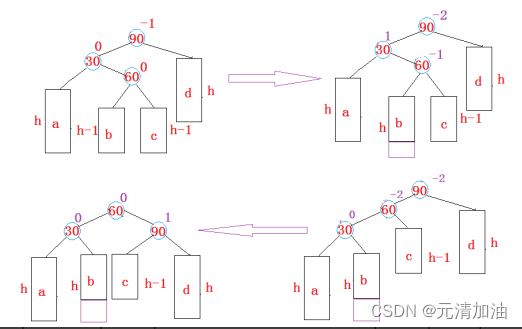
先对30进行左单旋,先对90右单旋
template<class K, class V>
void AVLTree<K, V>::RotateLR(Node* parent)
{
Node* subL = parent->_left;
Node* subLR = subL->_right;
int bf = subLR->_bf;
RotateL(parent->_left);
RotateR(parent);
if (bf == 0)
{
parent->_bf = subL->_bf = subLR->_bf = 0;
}
else if (bf == -1)
{
parent->_bf = 1;
subLR->_bf = 0;
subL->_bf = 0;
}
else if (bf == 1)
{
parent->_bf = 0;
subLR->_bf = 0;
subL->_bf = -1;
}
else
{
assert(false);
}
}2.3、右左双旋
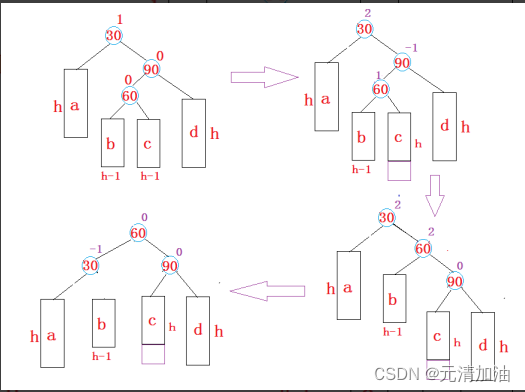
先对90进行右单旋,先对30左单旋
template<class K, class V>
void AVLTree<K, V>::RotateRL(Node* parent)
{
Node* subR = parent->_right;
Node* subRL = subR->_left;
int bf = subRL->_bf;
RotateR(parent->_right);
RotateL(parent);
if (bf == 0)
{
// subRL自己就是新增
parent->_bf = subR->_bf = subRL->_bf = 0;
}
else if (bf == -1)
{
// subRL的左子树新增
parent->_bf = 0;
subRL->_bf = 0;
subR->_bf = 1;
}
else if (bf == 1)
{
// subRL的右子树新增
parent->_bf = -1;
subRL->_bf = 0;
subR->_bf = 0;
}
else
{
assert(false);
}
}3、AVL树的性能
AVL树是带有平衡条件的二叉查找树,一般是用平衡因子差值判断是否平衡并通过旋转来实现平衡,左右子树树高不超过1,和红黑树相比,它是严格的平衡二叉树,平衡条件必须满足(所有节点的左右子树高度差不超过1)。不管我们是执行插入还是删除操作,只要不满足上面的条件,就要通过旋转来保持平衡,而旋转是非常耗时的,由此我们可以知道AVL树适合用于插入删除次数比较少,但查找多的情况。
如果要对AVL树做一些结构修改的操作,性能非常低下,比如:插入时要维护其绝对平衡,旋转的次数比较多,更差的是在删除时,有可能一直要让旋转持续到根的位置。因此:如果需要一种查询高效且有序的数据结构,而且数据的个数为静态的(即不会改变),可以考虑AVL树,但一个结构经常修改,就不太适合
4、实现
#include<assert.h>
template<class K,class V>
struct AVLTreeNode
{
AVLTreeNode<K, V>* _left;
AVLTreeNode<K, V>* _right;
AVLTreeNode<K, V>* _parent;
pair<K, V> _kv; // 存储的键对
int _bf; // balance factor
AVLTreeNode(const pair<K, V>& kv)
:_left(nullptr)
, _right(nullptr)
, _parent(nullptr)
, _kv(kv)
, _bf(0)
{}
};
template<class K, class V>
class AVLTree
{
typedef AVLTreeNode<K, V> Node;
public:
bool Insert(const pair<K, V>& kv);
bool IsBalance();
void InOrder();
void Height();
private:
void RotateL(Node* parent); //左旋转
void RotateR(Node* parent); //右旋转
void RotateRL(Node* parent); //右左旋转
void RotateLR(Node* parent); //左右旋转
bool _IsBalance(Node* root);
void _InOrder(Node* root);
int _Height(Node* root);
Node* _root = nullptr;
};
template<class K, class V>
bool AVLTree<K, V>::Insert(const pair<K, V>& kv)
{
if (_root == nullptr)
{
_root = new Node(kv);
return true;
}
Node* parent = nullptr;
Node* cur = _root;
while (cur)
{
if (cur->_kv.first < kv.first)
{
parent = cur;
cur = cur->_right;
}
else if (cur->_kv.first > kv.first)
{
parent = cur;
cur = cur->_left;
}
else
{
return false;
}
}
cur = new Node(kv);
if (parent->_kv.first > kv.first)
{
parent->_left = cur;
}
else
{
parent->_right = cur;
}
cur->_parent = parent;
// 更新平衡因子
while (parent)
{
if (cur == parent->_right)
{
parent->_bf++;
}
else
{
parent->_bf--;
}
if (parent->_bf == 1 || parent->_bf == -1)
{
// 继续更新
parent = parent->_parent;
cur = cur->_parent;
}
else if (parent->_bf == 0)
{
break;
}
else if (parent->_bf == 2 || parent->_bf == -2)
{
// 需要旋转处理 -- 1、让这颗子树平衡 2、降低这颗子树的高度
if (parent->_bf == 2 && cur->_bf == 1)
{
RotateL(parent);
}
else if (parent->_bf == -2 && cur->_bf == -1)
{
RotateR(parent);
}
else if (parent->_bf == -2 && cur->_bf == 1)
{
RotateLR(parent);
}
else if (parent->_bf == 2 && cur->_bf == -1)
{
RotateRL(parent);
}
else
{
assert(false);
}
break;
}
else
{
assert(false);
}
}
return true;
}
template<class K, class V>
void AVLTree<K, V>::RotateL(Node* parent)
{
Node* subR = parent->_right;
Node* subRL = subR->_left;
parent->_right = subRL;
subR->_left = parent;
Node* parentParent = parent->_parent;
parent->_parent = subR;
if (subRL)
subRL->_parent = parent;
if (_root == parent)
{
_root = subR;
subR->_parent = nullptr;
}
else
{
if (parentParent->_left == parent)
{
parentParent->_left = subR;
}
else
{
parentParent->_right = subR;
}
subR->_parent = parentParent;
}
parent->_bf = subR->_bf = 0;
}
template<class K, class V>
void AVLTree<K, V>::RotateR(Node* parent)
{
Node* subL = parent->_left;
Node* subLR = subL->_right;
parent->_left = subLR;
if (subLR)
subLR->_parent = parent;
Node* parentParent = parent->_parent;
subL->_right = parent;
parent->_parent = subL;
if (_root == parent)
{
_root = subL;
subL->_parent = nullptr;
}
else
{
if (parentParent->_left == parent)
{
parentParent->_left = subL;
}
else
{
parentParent->_right = subL;
}
subL->_parent = parentParent;
}
subL->_bf = parent->_bf = 0;
}
template<class K, class V>
void AVLTree<K, V>::RotateRL(Node* parent)
{
Node* subR = parent->_right;
Node* subRL = subR->_left;
int bf = subRL->_bf;
RotateR(parent->_right);
RotateL(parent);
if (bf == 0)
{
// subRL自己就是新增
parent->_bf = subR->_bf = subRL->_bf = 0;
}
else if (bf == -1)
{
// subRL的左子树新增
parent->_bf = 0;
subRL->_bf = 0;
subR->_bf = 1;
}
else if (bf == 1)
{
// subRL的右子树新增
parent->_bf = -1;
subRL->_bf = 0;
subR->_bf = 0;
}
else
{
assert(false);
}
}
template<class K, class V>
void AVLTree<K, V>::RotateLR(Node* parent)
{
Node* subL = parent->_left;
Node* subLR = subL->_right;
int bf = subLR->_bf;
RotateL(parent->_left);
RotateR(parent);
if (bf == 0)
{
parent->_bf = subL->_bf = subLR->_bf = 0;
}
else if (bf == -1)
{
parent->_bf = 1;
subLR->_bf = 0;
subL->_bf = 0;
}
else if (bf == 1)
{
parent->_bf = 0;
subLR->_bf = 0;
subL->_bf = -1;
}
else
{
assert(false);
}
}
template<class K, class V>
void AVLTree<K, V>::InOrder()
{
_InOrder(_root);
cout << endl;
}
template<class K, class V>
void AVLTree<K, V>::_InOrder(Node* root)
{
if (root == nullptr)
return;
_InOrder(root->_left);
cout << root->_kv.first << " ";
_InOrder(root->_right);
}
template<class K, class V>
bool AVLTree<K, V>::IsBalance()
{
return _IsBalance(_root);
}
template<class K, class V>
int AVLTree<K, V>::_Height(Node* root)
{
if (root == nullptr)
return 0;
int leftHeight = _Height(root->_left);
int rightHeight = _Height(root->_right);
return leftHeight > rightHeight ? leftHeight + 1 : rightHeight + 1;
}
template<class K, class V>
void AVLTree<K, V>::Height()
{
cout << _Height(_root) << endl;
}
template<class K, class V>
bool AVLTree<K,V>::_IsBalance(Node* root)
{
if (root == nullptr)
return true;
int leftHeight = _Height(root->_left);
int rightHeight = _Height(root->_right);
if (rightHeight - leftHeight != root->_bf)
{
cout << root->_kv.first << "平衡因子异常" << endl;
return false;
}
return abs(rightHeight - leftHeight) < 2
&& _IsBalance(root->_left)
&& _IsBalance(root->_right);
}


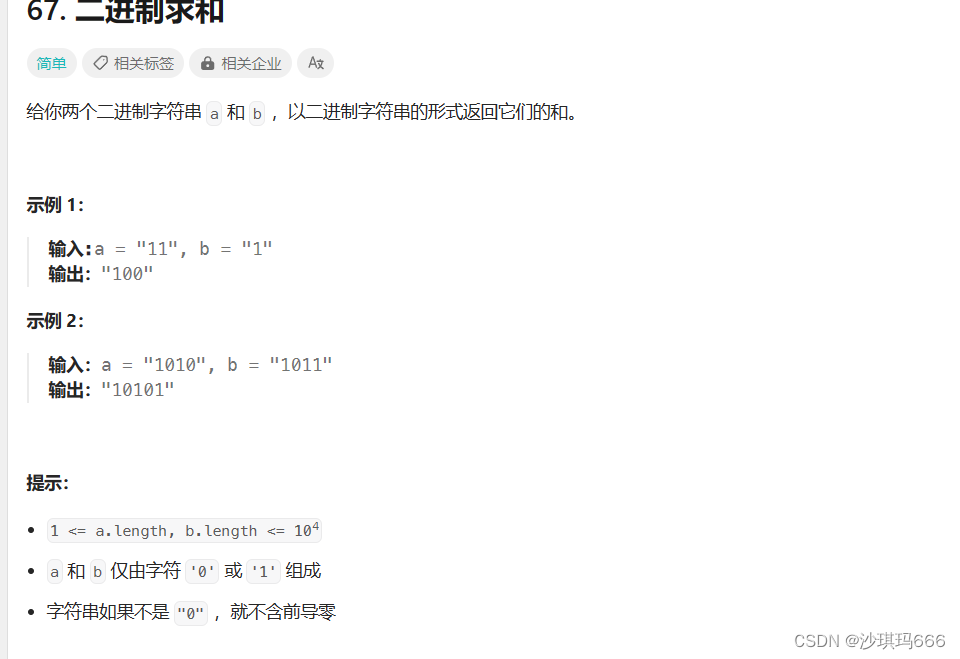



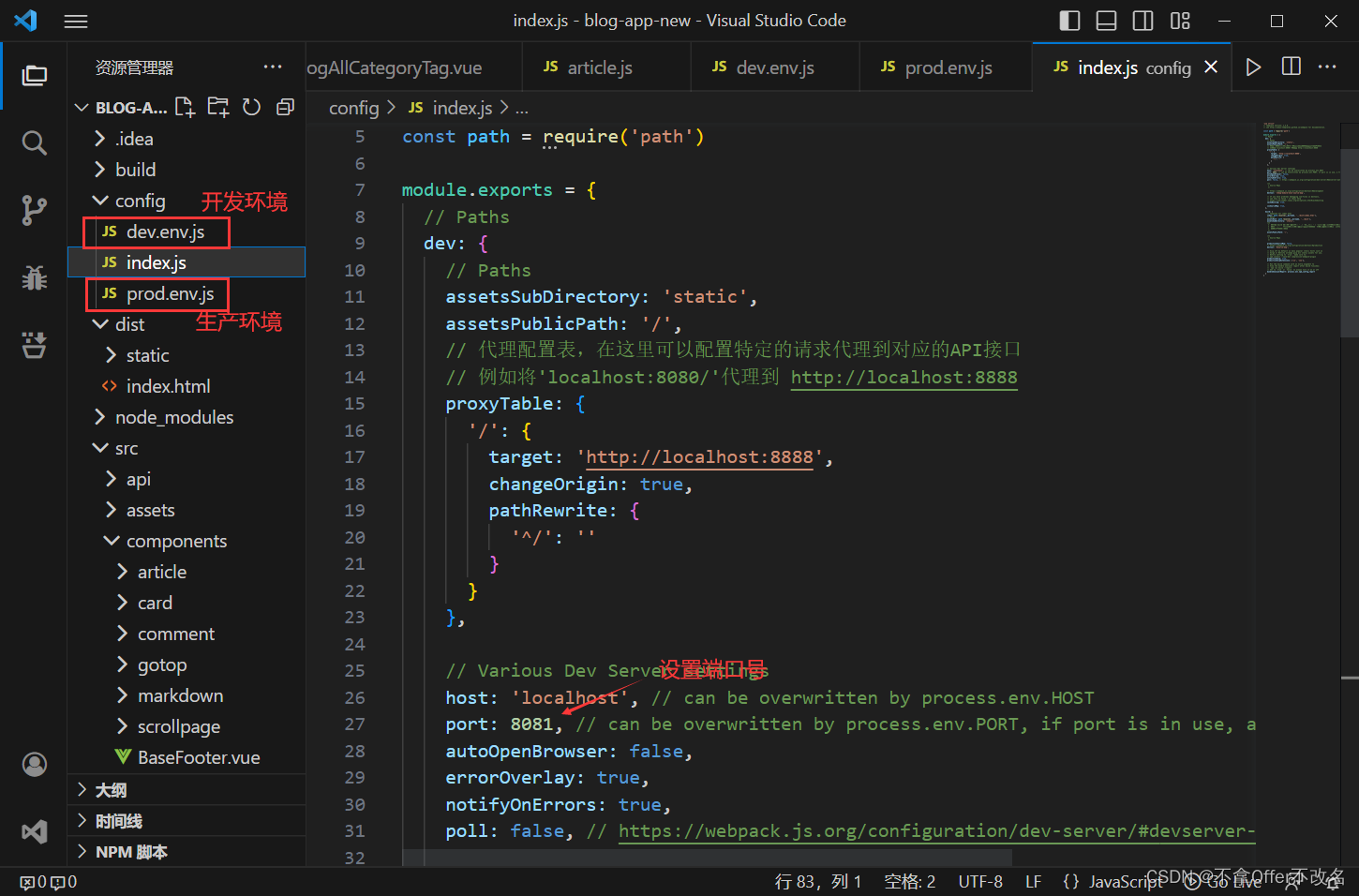
![VM虚拟机逆向---[羊城杯 2021]Babyvm 复现【详解】](https://img-blog.csdnimg.cn/632f8a02e2d144c0ae2f1462606049fb.png)

